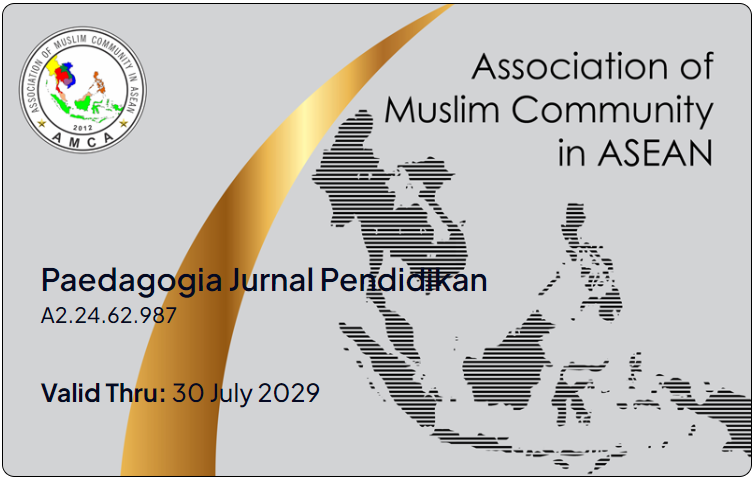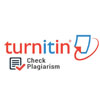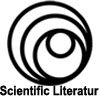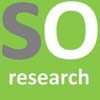THE ROLE OF TEACHERS IN TRANSACTIONAL AND TRANSFORMATIONAL LEARNING
Abstract
The main focus of the research is to describe the main concepts of transactional learning and transformational learning. Research was carried out through literature studies, with data collection using a "thematic" or "conceptual categories" approach where the results of the study of various references were organized according to topics or issues. The results of the research show that in transactional learning, the existence of the teacher has complete authority, occupies a central position, has advantages and knows everything, while students are in a position of not knowing, and therefore learning is indoctrinative, top down, centralized, prioritizing intellectual aspects, success learning is measured on the knowledge mastered by students cognitively. Transformative learning places greater emphasis on social and cultural transformation in students, so that they have the ability and insight to face and solve problems. The existence of teachers in transformative learning is actually parallel to the existence of students. Teachers and students are learning subjects and the object is reality. Transformative learning places dialogue as the main method in learning, and therefore the existence of teachers and students learn from each other.
Downloads
References
Bass, B. M. Personal Selling and Transactional/Transformational Leadership, Journal of Personal Selling & Sales Management, Vol. XVII, No. 3, 1997.
Brown, R. (2008). The Road Not Yet Taken: A Transactional Strategies Approach to Comprehension Instruction. The Reading Teacher, 61(7), 538-547.
Burns, J. M. Leadership, (New York, Harper & Row, 1978).
Cohan, A., & Honigsfeld, A. (2007). Incorporating ‘Lesson Study’ in Teacher Preparation. The Educational Forum, 71(1), 81-92.
Davis, E. A., & Krajcik, J. S. (2005). Designing Educative Curriculum Materials to Promote Teacher Learning. Educational Researcher, 34(3), 3-14.
Danim, Sudarwan. Agenda Pembaharuan Sistem Pendidikan, (Yogyakarta: Pustaka Pelajar, 2006).
______, Pedagogi, Andragogi, dan Heutagogi. (Bandung: Alfabeta, 2010).
Departemen Agama RI, Undang-Undang Republik Indonesia Nomor 20 Tahun 2003 (Jakarta: Ditektorat Jenderal Pendidikan Islam, 2007).
Flink, C., Boggiano, A. K., & Barrett, M. (1990). Controlling teaching strategies: Undermining children's self-determination and performance. Journal of Personality and Social Psychology, 59(5), 916-924.
Freire, Paulo. Education For Critical Consciousness, (New York: The Seabury Press, 1973 )
________, The Politic of Education: Culture, Power, and Liberation. Diterjemahkan oleh Agung Prihantoro dan Fuad Arif Fudiyartatnto, Politik Pendidikan, Kebudayaan, Kekuasaan dan Pembebasan. (Yogyakarta: Pustaka Pelajar, 1999).
Giroux, Henry et al., Counternarratives Cultural Studies and Critical Pedagogies in Postmodern Spaces, (New York & London: Routledge, 1996)
Gordon, Thomas dan Burch, Noel. Teacher Effectiveness Training, Alih bahasa, Aditya Kumara Dewi, Menjadi Guru Efektif, (Jakarta: PT Gramedia Pustaka Utama, 1997).
Imam Hanafie, Menuju Paradigma Pendidikan Islam Transformatif, dalam Al-Fikra, Jurnal Ilmiah Keislaman; Vol.8. No. 1. Januari-Juni 2009. ((pISSN:1693-508X;eISSN: 2502-7263)). Program Pasca Sarjana Universitas Islam Negeri Sultasn Syarif Kasim Riau.
Ki Supriyoko, Pendidikan Transaksional, (http://suaraguru.wordpress.com, diakses tanggal 14 Agustusl 2018)
Kuhn, Thomas S. The Structure of Science Revolutions, Peran Paradigma dalam Revolusi Sains, Penerjemah, Tjun Surjaman, (Bandung: Remaja Rosdakarya, 2008).
Johnson-Bailey, J., & Alfred, M. V. (2006). Transformational teaching and the practices of black women adult educators. New Directions for Adult and Continuing Education, 2006(109), 49-58.
Knight, S. L., Lloyd, G. M., Arbaugh, F., Gamson, D., McDonald, S. P., Nolan, J., et al. (2014). Performance Assessment of Teaching:Implications for Teacher Education. Journal of Teacher Education, 65(5), 372-374.
Labaree, R. (2013). Organizing Your Social Sciences Research Paper: The Literature Review. Retrieved 22 Oktober 2015, from USC Libraries: http://libguides.usc.edu/c.php?g =235034&p=1559822
Levy, Y., & Ellis, T. J. (2006). A Systems Approach to Conduct an Effective Literature Review in Support of Information Systems Research. Informing Science, 9, 181-212.
Mosston, Muska. Teaching from Command to Discovery. (California: Wadsworth Publishing Company, 1972).
an-Nahlawi, Abdurrahman. Ushu>l al-Tarbiyatil al-Isla>miyah wa Asa>libuha, Diterjemahkan oleh Herry Noer Ali, Prinsip-Prinsip dan Metode Pendidikan Islam; Dalam Keluarga, di Sekolah dan di Masyarakat (Bandung: CV. Dipoengoro, 1992).
O’Connor, K. E. (2008). “You choose to care”: Teachers, emotions and professional identity. Teaching and Teacher Education, 24(1), 117-126.
Oliver, R. (1999). Exploring strategies for online teaching and learning. Distance Education, 20(2), 240-254.
Rosyada, Dede. Paradigma Pendidikan Demokratis; Sebuah Model Pelibatan Masyarakat dalam Penyelenggaraan Pendidikan (Jakarta: Prenada Media, 2004).
Santrock, John W. Educational Psychology, Diterjemahkan oleh Diana Angelica, Psikologi Pendidikan, Edisi 3 Buku 1. (Jakarta: Salemba Humanika, 2008)
Scott-Little, C., La Paro, K. M., & Weisner, A. (2006). Examining Differences in Students’ Beliefs and Attitudes: An Important Element of Performance-Based Assessment Systems for Teacher Preparation Programs. Journal of Early Childhood Teacher Education, 27(4), 379-390.
Smith, M. U., & Scharmann, L. C. (1999). Defining versus describing the nature of science: A pragmatic analysis for classroom teachers and science educators. Science Education, 83(4), 493-509.
Spooner, F., Baker, J. N., Harris, A. A., Ahlgrim-Delzell, L., & Browder, D. M. (2007). Effects of Training in Universal Design for Learning on Lesson Plan Development. Remedial and Special Education, 28(2), 108-116.
Supriadi, Dedi. Isu dan Agenda Pendidikan Tinggi di Indonesia, (Jakarta: PT. Rosda Jayaputra, 1997).
Tilaar, H.A.R. Pedagogi Kritis; Perkembangan, Subtansi, dan Perkembangannya di Indonesia, dalam, H.A.R. Tilaar, dkk. (editor), Pedagogi Kritis, (Jakarta: Rineka Cipta, 2011)
Tumiwa, S., dan Hasan, Hamka, Pendidikan Transformatif. http://steventumiwa.blog.com. Diakses taggal 15 Agustus 2018
Webster, J., & Watson, R. T. (2002). Analyzing the Past to Prepare for the Future: Writing a Literature Review. MIS Quarterly, 26(2), 10.
Yukl, G. Leadership in Organizations, Fourth edition, (New Jersey, Prentice Hall, 1998).
Copyright (c) 2024 Paedagogia: Jurnal Pendidikan

This work is licensed under a Creative Commons Attribution-NonCommercial 4.0 International License.
The author agrees to the following conditions upon publishing a work to Paedagogia: Jurnal Pendidikan:
1. Each article is licensed under a Creative Commons Attribution-NonCommercial 4.0 International License. The author(s) recognizes that Paedagogia: Jurnal Pendidikan has the right to be the first to publish under a Creative Commons Attribution-NonCommercial 4.0 International License. This license permits the copying and redistribution of this material in any form or format, as well as the composition, modification, and creation of derivative works of this material for any purpose, but Non commercial, as long as the author is credited with the original work.
2. Authors may submit articles separately or arrange for non-exclusive distribution of manuscripts previously published in this journal in other forms (e.g., to the author's institutional repository, publication in books, etc. ), provided that the manuscript is acknowledged as having been published first in the Paedagogia: Jurnal Pendidikan.
3. A copyright submission agreement must attach each approved manuscript prior to publication. You may obtain the form for the copyright submission agreement here (INA) (EN).

































 This work is licensed under a
This work is licensed under a 